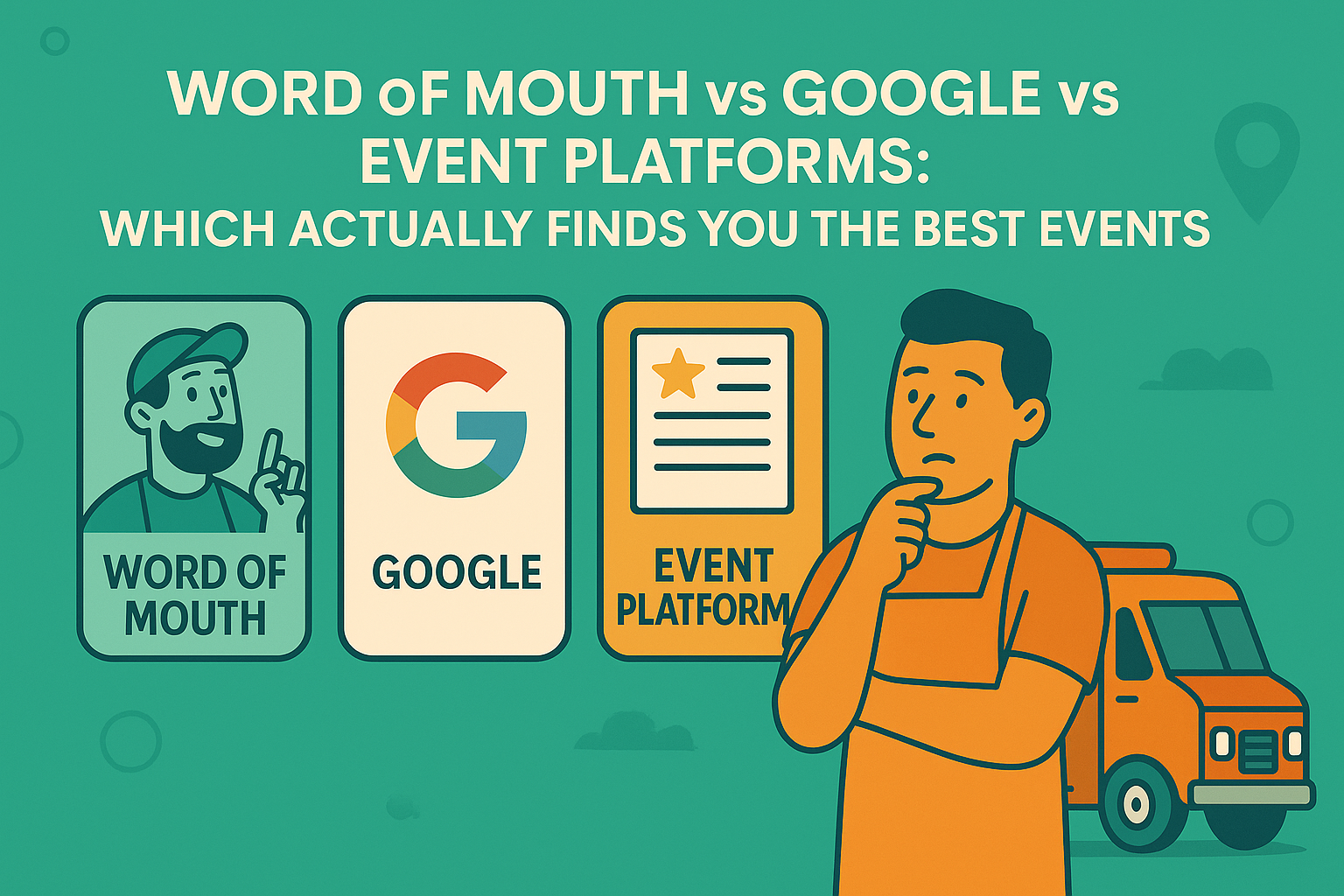Intro
Every food truck vendor has a favorite way to find new events. Some rely on friends in the community. Others spend hours searching Google. Many use event platforms that promise curated listings.
But which of these actually works best — and which ones leave you missing out?
Let’s break down each approach, the pros and cons, and why more vendors are now turning to AI-powered discovery as the smarter alternative.
Internal link: Overview: Where to Find Food Truck Events in 2025
Word of Mouth
For many vendors, word of mouth feels like the safest option. If another truck says an event was worth it, that carries weight.
The problem is reach. You’re limited to the events that happen to be known in your circle — and in smaller towns, that might not be very many.
Pros: Trusted leads, usually from vendors with firsthand experience.
Cons: Too narrow. If your network doesn’t know about an event, you probably won’t either.
Google Search
Google feels like it should be the ultimate tool — every event must be online somewhere, right?
In practice, it’s overwhelming. You can spend hours trying different search terms like “food truck festival near me” or “county fair vendor application” and still come up empty. Even when you do find something, details are often out of date or buried.
Pros: Huge coverage, pulls in results from many sources.
Cons: Time-consuming, messy, and full of outdated information.
Event Platforms
Sites like fairsandfestivals.net, Roaming Hunger, or Eventeny offer curated listings. They can make discovery feel more organized, but they only show the events that work with their platform.
That means dozens of local opportunities may never appear in your feed. Some platforms also hide key details behind paywalls or subscriptions.
Pros: Centralized listings, easier to browse than Google.
Cons: Only display partner events, often limited in scope or region.
AI-Powered Event Discovery
AI takes a different approach. Instead of focusing on one channel, it pulls from all of them — websites, directories, announcements, and more. Then it organizes the results into a simple, searchable dashboard.
Here’s where AI stands out:
- Shows attendance estimates and permit/license requirements
- Provides multiple contact options (emails, phone numbers, forms)
- Lets you filter by event type, size, date, and location
- Cuts down search time while surfacing more reliable leads
For food trucks, this means less guesswork and more time running the business.
Conclusion
The old ways of finding events each have strengths, but none cover the full picture.
- Word of mouth is trusted but limited.
- Google is wide-reaching but chaotic.
- Event platforms are organized but narrow.
The future isn’t about choosing one over the others — it’s about combining everything into one clear view.
That’s exactly what AI makes possible.
Read More:
- See the real cost breakdown: The Hidden Costs of Hunting for Events
- What’s next for vendors: Independent Food Trucks vs Franchises
